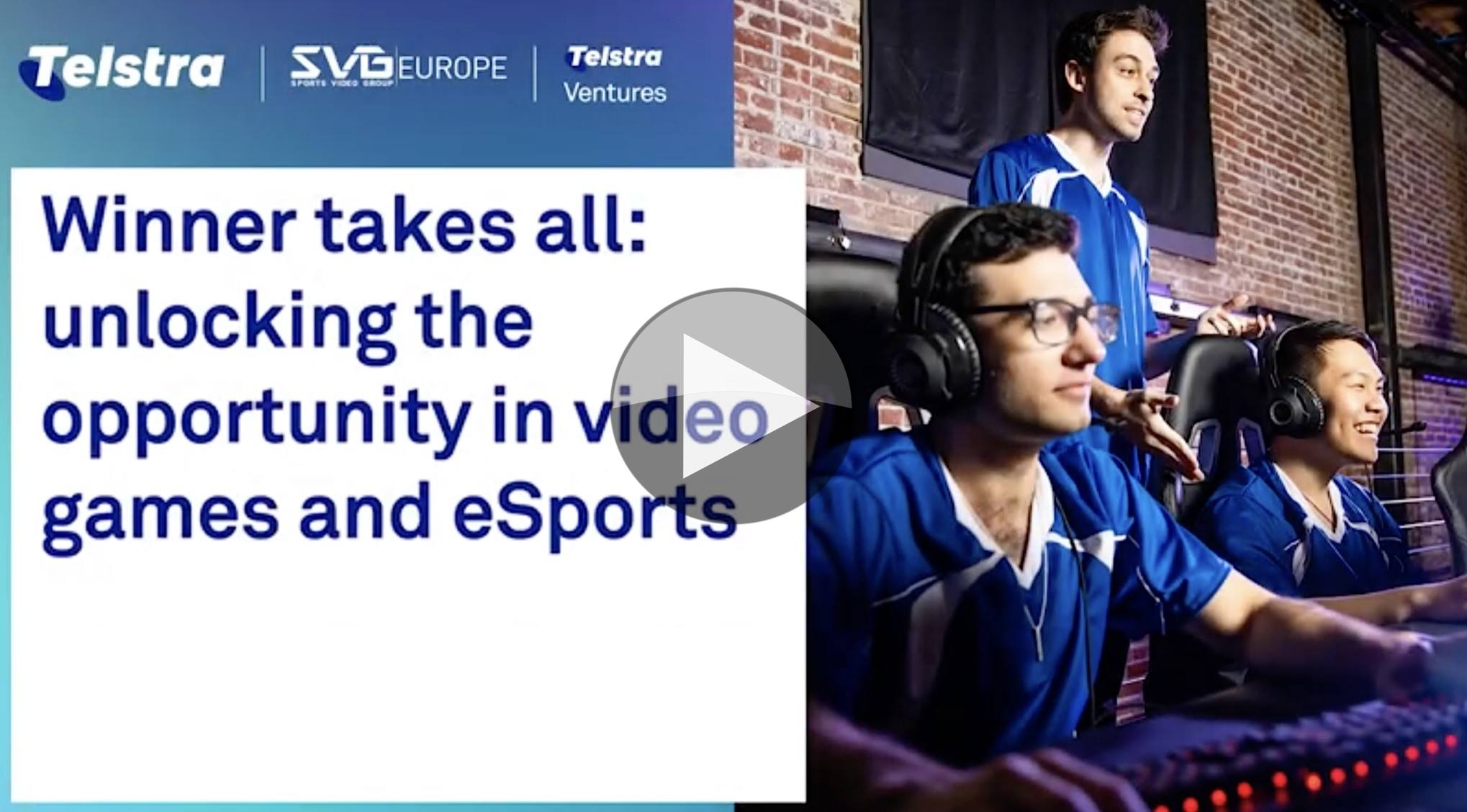Even without the pandemic, esports was set to continue its growth over 2020. By the end of 2020, esports had had quite a boost while other sports were canceled. And whilst esports is a large market, it’s still often misunderstood by those unfamiliar with it. This panel recently looked at not only how Covid had changed esports but also how traditional broadcasters can engage with this popular entertainment segment.
The session starts with an overview of the Asian esports market with Daniel Ahmad from Niko Partners. In 2019 there were 1.3 billion gamers in the whole market. In China, there were 321 million PC gamers who spent around $14.6 billion, plus a mobile gaming population which, by 2024, will have doubled their spending to $32 billion across 737 million gamers.
With esports clearly on the rise, the Sports Video Group’s Jason Dachman has brought some of the key players in esports together, Anna Lockwood from Telstra, Steven Jalicy from ESL, David Harris from Guinevere Capital and Yash Patel from Telstra Ventures. Straight off the bat, they tackle the misconceptions that mainstream media has regarding esports. Steven from ESL says people are quick to dismiss the need for quality in esports. In some ways, the quality needs, he says, are more demanding. David Harris says that people overstate esports’ size today and underestimate how big it will be in the future. Anna Lockwood on the other hand sees that people don’t realise how different and powerful the stories told in esports are.
Asked to talk about how Covid changed ESL’s plans in 2020, he explained that at the final count, they had actually done more events than last year. ESL had already switched to remote working for much of the technical roles in 2018, at the time seen as quite a forward-thinking idea. Covid forced the rest of the workflows to change as stadium appearances were canceled and gamers competed remotely. Fortunately, the nature of esports makes it relatively easy to move the players. Post-Covid, Steven says that arenas will be back as they are very popular and an obvious focus for tournaments. Seeing players in the flesh is an important part of being a fan. But much of the technical changes, are likely to stay at least in part.
Jason Cacheman asks the panel why esports on linear TV hasn’t been very successful. Many of the panelists agree that the core fans simply aren’t that interested in watching on linear TV as they already have a set up to watch streamed which suits them, often, much better. After a question from the audience, their suggestions for incorporating linear TV into esports is to acknowledge that you’re talking to a group of people who are interested but really don’t know, possibly, anything at all. Linear TV is a great place for documentaries and magazine shows which can educate the audience about the different aspects of esports and help them relate. For instance, a FIFA or NBA esports tournament is easier to understand than a Magic: The Gathering or League of Legends tournament. Linear TV can also spend time focussing on the many stories that are involved in esports both in-game and out. Lastly, esports can be a conduit for traditional broadcasters to bring people onto their digital offerings. As an example, the BBC have an online-only channel, BBC Three. By linking esports content on both BBC Two and BBC Three, they can get interested viewers of their broadcast channel to take an interest in their online channel and also have the potential to appeal to core esports fans using their digital-only channel.
Other questions from the audience included the panel’s opinion on VR in esports, use of AI, how to start working in esports, whether it’s easier to bring esports engineers into broadcast or the other way round. The session finished with a look ahead to the rest of 2021. The thoughts included the introduction of bargaining agreements, salary caps, more APIs for data exchange, and that what we saw in 2020 was a knee-jerk reaction to a new problem; 2021 will see real innovation around staying remote and improving streams for producers and, most importantly, the fans.
Watch now!
Speakers
 |
David Harris Managing Director, Guinevere Capital |
 |
Steven Jalicy Global Head of Streaming, ESL Gaming |

|
Anna Lockwood Head of Global Sales, Telstra Broadcast Services |
 |
Yash Patel General Partner, Telstra Ventures |
 |
Moderator: Jason Dachman Chief Editor, Sports Video Group |


